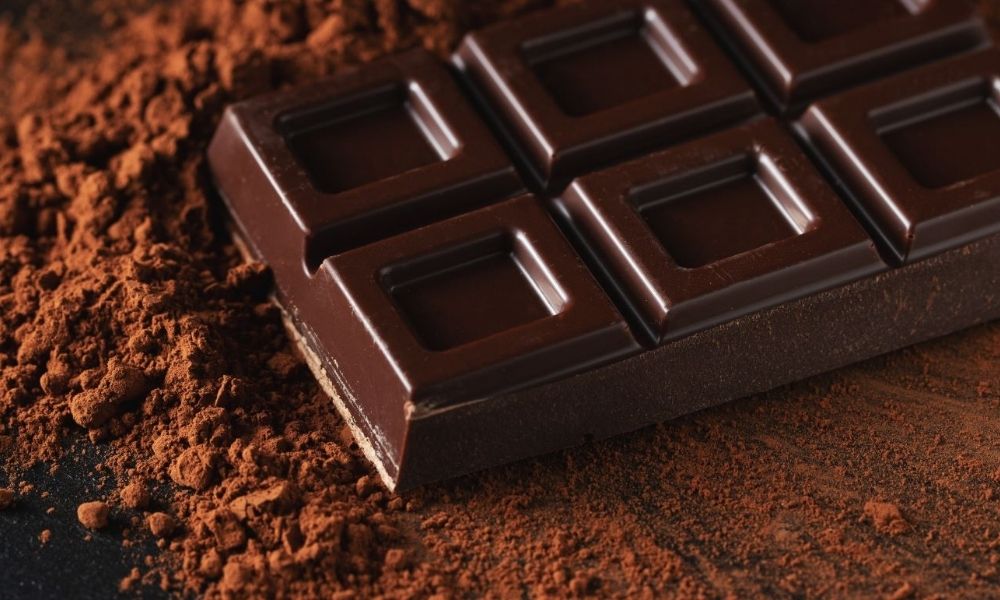Health Benefits of Dark Chocolate

Unlike milk or white chocolate, dark chocolate contains a higher percentage of cocoa, which is packed with antioxidants, minerals, and compounds that support heart health, brain function, and overall well-being.
One brand that exemplifies the finest dark chocolate experience is CMV Txokolat, a chocolate company founded in 2012, that has long been known for its luxurious and authentic chocolates. CMV Txokolat has made its mark by creating high-quality confections beyond mere indulgence. One of their standout products is the Pomelo Dark Chocolate Bar, a unique combination of rich cocoa and the citrusy sweetness of candied pomelo.
What’s So Special About Dark Chocolates?
Dark chocolate is made from cocoa solids, cocoa butter, and minimal sugar, which give it a deep, complex flavor. The higher the cocoa content, the less sweet and more intense the chocolate tastes. Typically, dark chocolate contains between 50% and 90% cocoa solids, making it the healthiest option compared to milk or white chocolate, which contain more sugar and dairy.
Unlike overly processed chocolates that lose many of their natural benefits, CMV Txokolat preserves the authentic taste and nutrients of cocoa. Their Pomelo Dark Chocolate Bar highlights this commitment to quality, offering a perfect balance of bittersweet cocoa and refreshing citrus.
Is Cocoa a Bean or a Fruit?
The word “cocoa” is often followed by the words “bean” or “fruit” they just sounded natural over time. But in fact, cocoa is neither a fruit nor a bean, it’s not even a legume. Cocoa is a seed from the fruits of the cacao tree.
Origin of Cocoa
According to Hotel Chocolate, a British chocolate company and cocoa grower, the cocoa tree is native to the Amazon Basin in South America. Now, the cocoa tree is cultivated in many different countries all over the world, as long as it meets the ideal conditions for the plant.
Cocoa vs. Cacao
It’s quite easy to think that cocoa and cacao mean the same thing with one being the alteration of the other, but they are not.
The basic difference is that cacao is cocoa in its minimally processed form, meaning that is is exclusively used for raw and unrefined powders, nibs, and whole beans. These are split into small pieces., sun-dried, and sometimes even baked. Cocoa on the other hand is roasted and sometimes in Dutch cocoa powders. They have different flavor profiles which make them distinct from each other and unlikely to be used as alternatives for one another.
Is cocoa or cacao healthier?
According to Danielle Ryan Broida, a holistic nutritionist and the author of Healing Adaptogens, cacao is the most phytochemically complex food on the planet, with 1,200 active compounds that support your brain, heart, and immune system. It contains high amounts of iron, magnesium, zinc, an amino acid called tryptophan, and more.
Now knowing that cocoa is simply roasted cacao, it contains the same bits of nutrients but at a lesser value. Regardless, it is still a fairly healthy option.
How is Dark Chocolate Made?
The first step in making dark chocolates starts with harvesting ripe cacao pods, slicing them open to reveal the beans inside. These beans, coated in a sticky white pulp, are left to ferment for several days. This step enhances their deep, complex flavors and sets the foundation for rich dark chocolate.
Once fermentation is complete, the beans are spread out under the sun to dry, their aromas intensifying with each passing day. They are then roasted afterwards.
After roasting, they are cracked open to reveal the cacao nibs, which are ground into a thick, rich paste known as chocolate liquor. Despite its name, this contains no alcohol—only pure, concentrated cacao. The liquor is refined and conched, a process of continuous mixing that smooths the texture and develops its velvety consistency.
Finally, the chocolate undergoes tempering, a heating and cooling process that gives it a glossy finish and satisfying snap. Poured into molds, it sets into the dark chocolate bars we savor, each bite carrying the journey from bean to indulgence.
Health Benefits of Dark Chocolate
The best news is that dark chocolate isn’t only delicious, it also has a wide range of health benefits backed by scientific research. Here’s how adding dark chocolate into your diet can positively impact your health:
1. Rich in Antioxidants
Dark chocolate contains powerful antioxidants, including flavonoids and polyphenols, which help combat oxidative stress and protect the body from damage caused by free radicals. This contributes to overall health and reduces the risk of chronic diseases.
2. Supports Heart Health
Flavonoids in dark chocolate promote heart health by improving blood circulation, reducing blood pressure, and lowering cholesterol levels. Studies suggest that consuming dark chocolate in moderation may reduce the risk of heart disease and stroke.
3. Boosts Brain Function
The natural compounds in dark chocolate, including caffeine and theobromine, can enhance cognitive function, improve focus, and reduce mental fatigue. Flavonoids also encourage better blood flow to the brain, supporting memory and learning.
4. Enhances Mood and Reduces Stress
Dark chocolate stimulates the production of endorphins, the brain’s "feel-good" chemicals, which help reduce stress and elevate mood. It also contains serotonin, a neurotransmitter that promotes happiness and relaxation.
5. Aids Weight Management
Contrary to the common belief that chocolate leads to weight gain, dark chocolate can actually support weight management. Its rich flavor and satisfying texture help curb cravings, making it easier to stick to a balanced diet.
6. Improves Symptoms of Type 2 Diabetes
While excessive sugar consumption is harmful to those with diabetes, dark chocolate with high cocoa content contains compounds that may improve insulin sensitivity. Flavonoids help regulate blood sugar levels, making dark chocolate a smarter choice for those monitoring their glucose intake.
7. Supports Skin Health
Dark chocolate’s high antioxidant content can benefit skin health by protecting against sun damage, improving hydration, and increasing blood flow to the skin. Regular consumption may contribute to a glowing and youthful complexion.



